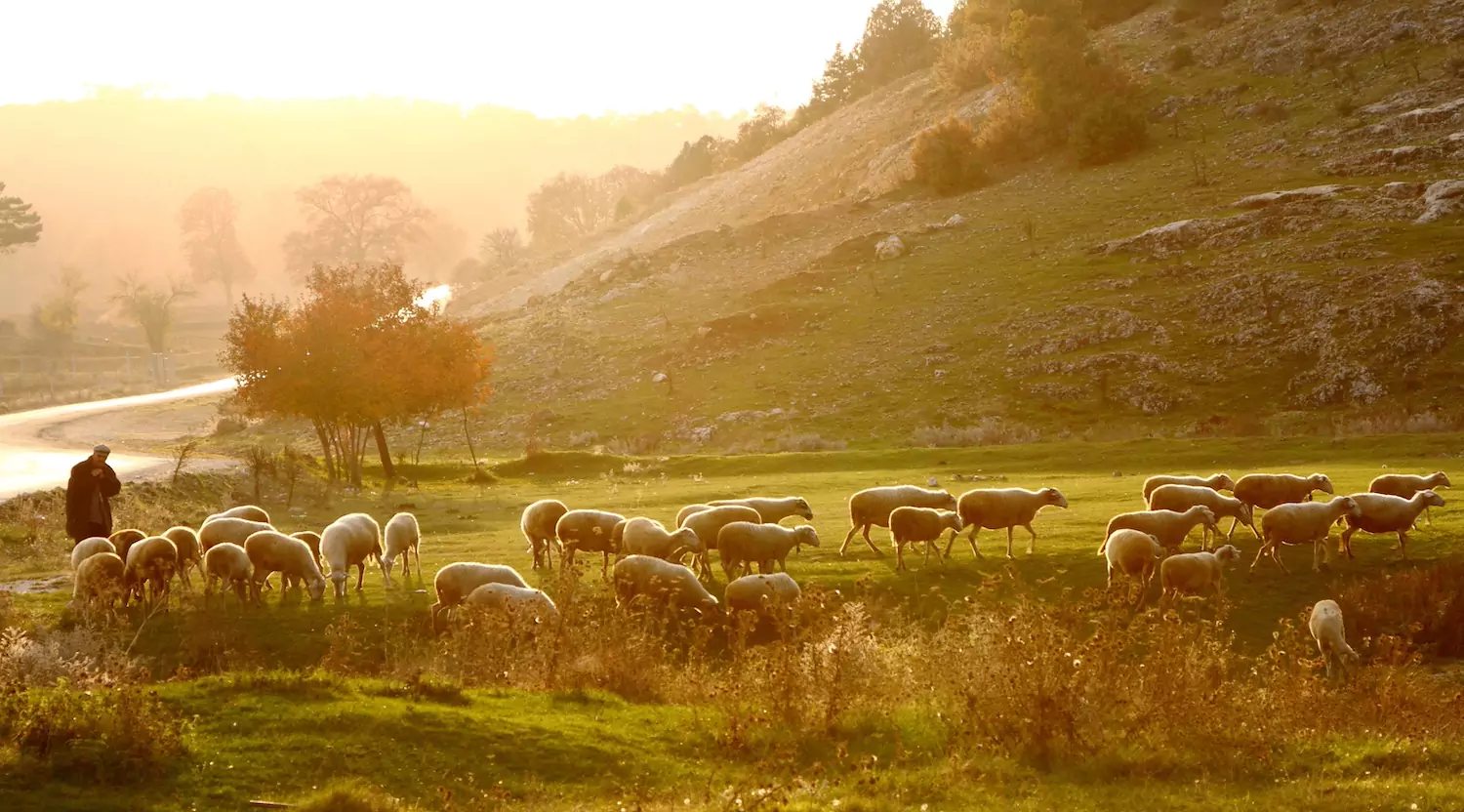Three Reasons to Go on a Silent Retreat
The first silent retreat I ever took was inadvertently silent. It occurred several years ago. I was exhausted from a recent cross-country trip and desperately needed quiet hours alone with the Lord. I told my husband I was missing the retreat center near our previous home, where I had gone many times for family camps and women’s retreats. He suggested I consider going to a local monastery that offers unstructured retreats. This Abbey provides retreatants three meals a day, a private bedroom and bathroom, access to miles of hiking trails, and the option of attending daily services. The only stipulation is that they ask participants to hold silence for the duration of their stay on the monastery grounds.
“You won’t talk for three days straight? I don’t think I can do that!” said one of my friends when I mentioned the possibility of her joining me. Another friend was even more straightforward. She replied, “That sounds terrible.” It didn’t sound terrible to me – it sounded intriguing, so I decided to go alone. It turned out that the silent aspect of my first trip to the Abbey was one of the highlights of the experience. I enjoyed it so much that it has become a tradition. This spring marked my fifth annual silent retreat. I can summarize my purposes for taking regular spiritual retreats in three words: rest, relationship, and reflection. Not every spiritual retreat is silent, but silence contributes a unique facet to each of these purposes. It’s a component of rest we don’t often experience (and might never experience if we don’t plan for it). Maybe your initial response to the thought of taking a silent retreat is in line with my friend’s responses, or you might find the concept intriguing, as I did. Either way, here are a few reasons pastors should consider incorporating silence into your rhythms of rest.
1. Rest
The first reason to take a spiritual retreat is to rest. Silence will allow you to enter more fully into that rest. Have you ever thought about how much mental energy you expend each day forming and speaking meaningful sentences? I never gave it much thought until three days spent in total silence removed all the normal pressure of speaking. Ascribing apt words to the thoughts in our minds takes effort. We fulfill the command “love your neighbor as yourself” through a combination of many deeds and even more words. Seeking fitting words, seizing them, and offering them to others is laborious. Especially when you consider that Christians are held to a high verbal standard. We don’t need just to pick the right words to describe our thoughts. Scripture teaches us to weed through our thoughts, selecting only the words that will bless the people who are listening (Ephesians 4:29). Paul instructs Timothy (and us) always to be prepared to love our listeners by sharing pertinent words with them (2 Timothy 4:1). We are to speak our words patiently. They must be appropriate to the situation, which might call for correction, rebuke, or encouragement (1 Thessalonians 5:11,14). Scripture also emphasizes the importance of careful listening, which is weighty work that requires careful attention (James 1:19). Silent retreats offer more than a reprieve from the pressure of speaking. They also provide a needed break from listening to our neighbors. This rest frees us temporarily to listen more carefully to what God might be saying to us through his Word and Spirit.
2. Deepen Key Relationships
The second important aspect of a spiritual retreat is the opportunity to deepen key relationships. Retreats involving other people are wonderful. My family has attended several family camps over the years. We made happy memories there! There were ropes courses, pancake tossing competitions, worship services, daily trips to the ice cream shop, and lots of laughter. We enjoyed each other’s company and grew to know each other better through those interactions. My first silent retreat was a stark contrast to the joyful busyness of family camp. That stillness drew my attention to the reality that I don’t relate to God the same way I relate to my neighbors.
God is always attentive to me; my interactions with him never change his knowledge of me. Even before I came to know Jesus, he knew me better than I would ever know myself, and no prayer that I pray will cause him to love me more because Jesus has supplied everything necessary for my salvation. Silent retreats don’t change God; they change us by sharpening our attentiveness toward Him. Mystery becomes evident when I noiselessly commune with Christ. I pray to God to deepen my fellowship with him, yet nothing I ever say to him could make him understand me better. It gives me great comfort to share my heart with Jesus, the only person who hears my thoughts and perceives my motivations. My neighbors might misunderstand me, so I need to sort my words before I share them. With God, I’m invited to offer everything, including the unfiltered, jumbled, messy words that so often accompany pain and suffering. God even responds knowingly to my groanings – when pain is too confusing or intricate to put into words (Romans 8:23). With Jesus, you and I don’t have to arrange all the words correctly to communicate our hearts. I am grateful when I set aside time to converse silently with my wise, omnipotent Father.
3. Time for Reflection
Finally, spiritual retreats are a time for reflection. Silence allows for depth of reflection that is not always accessible within the word cluttered realm of normal life. Being quiet has allowed me to think deeply about aspects of my life that needed more attention. Before leaving for each retreat, I identify one area of life to focus on during my time away. Here are a few emphases that I’ve selected for past retreats – parenting, marriage, personal or professional development. Once I have an emphasis, I find a book or article to read in conjunction with it. Finally, I select a fitting passage of Scripture to meditate on. One year of professional development was the theme of my retreat. While I was away, I read essays on writing by C.S. Lewis, meditated on the parable of the Talents (Matthew 25:14-30), and spent a few hours each day working on a book proposal. But a meaningful retreat does not necessarily have to accomplish a measurable goal. One year, my emphasis was simply rest. That year, I didn’t do anything productive while I was away; instead of finding resources to read on the trip, I purchased really good snacks. I spent my mornings enjoying unhurried prayer and bible reading. Then I ate lunch and took a nap. Since trails surround the monastery, I hiked five to seven miles each afternoon.
Spiritual retreats are a gift from God. Silent retreats are uniquely refreshing because they allow a quality of rest that cannot be attained within the normal, healthy rhythms of family and ministry life. Recently, I was at a church event that took place in the evening. As our event was wrapping up, our pastors received a call that one of our church’s senior saints was nearing death. As the rest of us gathered our belongings and went home for the night, our pastors left to be at this dear woman’s bedside.
I know that each of my pastors consider themselves privileged when God grants them the sacred opportunity to care for the saints. I also know, as the wife of a former pastor, that pastors get tired. Regular rest is necessary, especially if you intend to be present to lead your people through their trials. While Jesus walked the earth, he took time to step away from the crowds and commune exclusively with his heavenly Father. As a pastor, your weary soul will benefit from this kind of rest, too. If you don’t already incorporate silence into your sabbatical or vacation schedule, I hope you consider trying it in the years to come.
©2024 Jenny Solomon. Used with Permission.
About The Author

Jenny Solomon
Jenny Solomon studied Philosophy and Religion at College of the Ozarks, attended The Southern Baptist Theological Seminary, and has served as a ministry wife for over a decade. She and her husband, Curtis, are founders of Solomon SoulCare.








